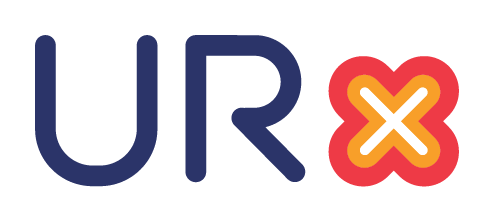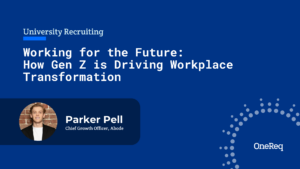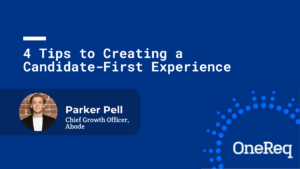Internships are pivotal in helping students determine their career direction at your company, introduce them to your company culture, and teach them how to be successful in that environment. For employers, internship programs offer fresh perspectives, help build organic talent pipelines, and maximize buy-in and company loyalty. Completing an internship doesn’t just make students more likely accept your subsequent full time offer. Intern conversions also result in higher retention.
Scholars co-founder Parker Pell recently sat down with Jennifer Newbill of Dell Technologies and Kathy Schaum of KPMG to speak about recent shifts seen in their intern-to-full time conversion rates. With over 40 years combined experience, Jennifer and Kathy offered insights on how the job market has impacted offer rates vs. acceptance rates, what goes into providing an exceptional intern experience (hint: it involves, networking, professional development, and mentorship!), building connections between interns, and collecting and executing on intern feedback.
Below are 4 key takeaways from the virtual discussion:
Start Recruiting Early
“Three or four years ago, we started tracking everything,” says Jennifer. “We weren’t really tracking our intern-to-intern conversion rate, and once we did, we thought ‘wow, that’s pretty high.’” This realization ultimately led Dell Technologies to start recruiting freshmen and sophomores (versus strictly juniors and seniors), allowing them to capture a wider pool of talent and stay top-of-mind with students through their early career journey.
Provide Ample Networking Opportunities
Today’s early-career talent wants to make meaningful connections at work. Kathy and Jennifer were quick to point out that networking can take place in both professional, structured environments and more relaxed settings. Their takeaways? Provide interns with opportunities to present their projects to the SVP of their department at the end of the program. Or, encourage your executives to host a coffee chat or lunch-and-learn. At the same time, make sure to have fun with it! Happy hours, trivia nights, talent shows, and other social outings can also act as networking opportunities.
Create Feedback Loops
“This generation wants to be heard,” explains Jennifer. At a minimum, Kathy and Jennifer advise checking in with each intern three times throughout their program – at the beginning, a midpoint check-in, and then in the final weeks. Collecting feedback allows teams to fill in gaps and understand how their program experience resonates. It also provides data for teams to guide their decisions in making improvements to their programs over time.
Maintain a Mentorship Program
To set up your interns for success, think about pairing each intern with a mentor. “[At KPMG], we have two roles,” says Kathy. A performance manager helps set expectations and objectives while measuring output. The buddy may be a former intern to provide additional support, guidance, insights, and advice. Both roles are important in helping alleviate career anxiety with your current cohort.
To sum it up, a successful internship program produces networking and mentorship opportunities, collects feedback, and offers a way to keep talent in your pipeline.
About the Author
Parker Pell is co-founder and Chief Growth Officer at Scholars, an early-career communication and engagement platform. As an undergraduate, Parker and his two co-founders experienced the inefficiencies that plagued entry-level job recruitment. Recognizing the need for change, Scholars has evolved into helping companies such as eBay, Lyft, PwC, and Elevance Health provide more engaging candidate-first experiences. Parker earned a BS in Economics from Rhodes College.








